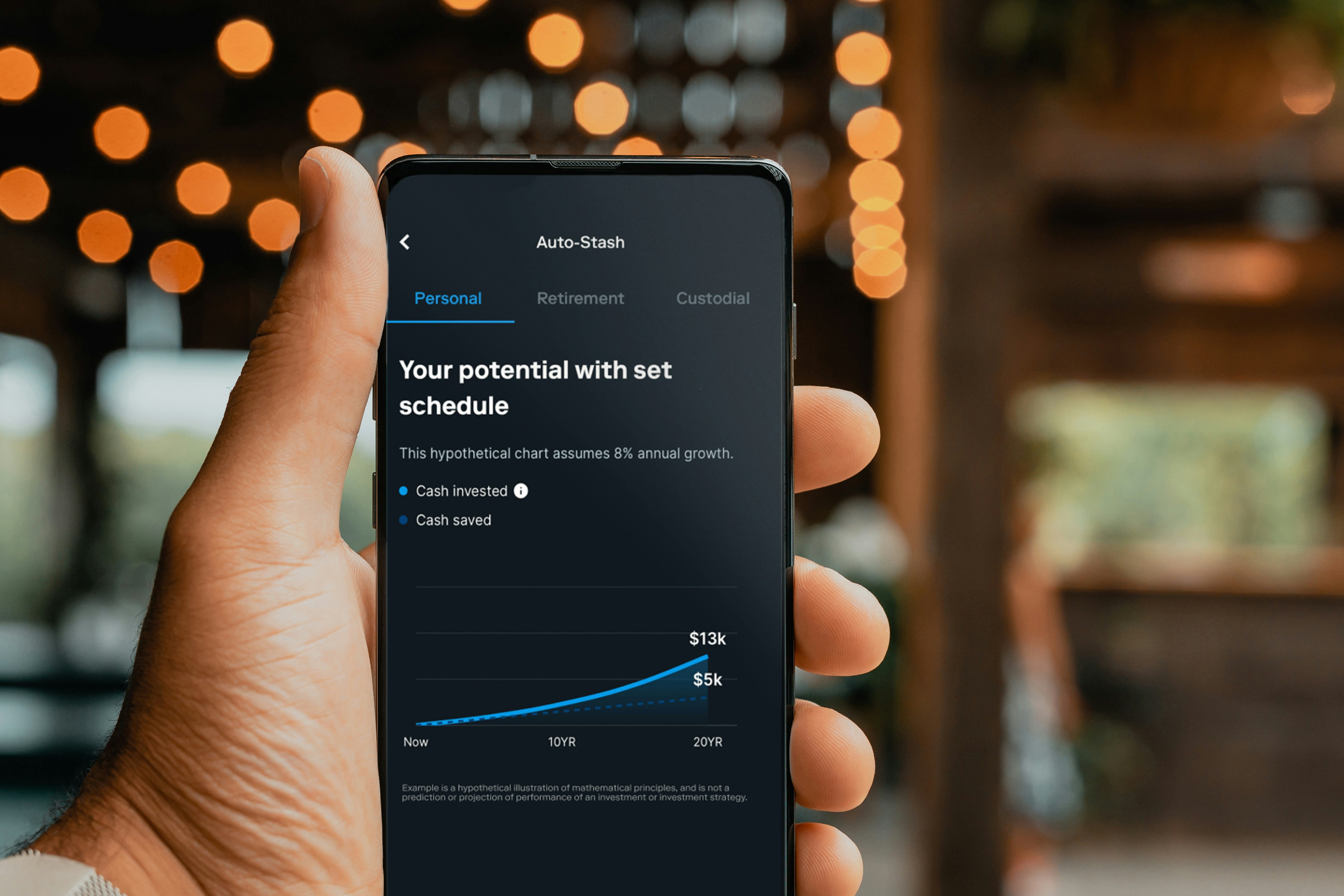Understanding Your Financial Landscape
Freelancing comes with a unique set of financial responsibilities that differ significantly from traditional employment. One of the most notable challenges freelancers face is income variability. Unlike a salaried position, freelancers often experience fluctuations in their earnings due to the nature of contract-based work. This variability makes it essential for freelancers to develop a comprehensive understanding of their financial landscape to ensure stability and growth.
Managing expenses is another critical aspect of a freelancer’s financial landscape. Freelancers must account for both fixed and variable expenses, which can include costs for materials, software, equipment, and office space. Unlike traditional employees, who often have some of these costs covered by their employers, freelancers bear the full responsibility for these outlays. An accurate tracking system for all incurred expenses is vital to maintain financial health and to identify areas where cost-cutting may be necessary.
In addition to understanding income and expenses, freelancers must also navigate their tax obligations individually. Unlike employees, who typically have taxes withheld from their paychecks, freelancers are responsible for estimating and paying their taxes on a quarterly basis. This requires a solid grasp of tax regulations, both federal and state, as well as a clear strategy for setting aside funds to meet these obligations. Failure to adequately prepare for tax payments can lead to significant financial strain and potential penalties.
Ultimately, cultivating a detailed understanding of one’s financial landscape—including income variability, expenses, and tax responsibilities—is essential for freelancers. This foundation not only promotes financial stability but also empowers freelancers to make informed decisions regarding investments in their businesses, ensuring long-term growth and success. By addressing these financial elements comprehensively, freelancers can more effectively manage their finances and achieve their professional goals.
Establishing an Efficient Financial System
For freelancers, managing finances can often feel overwhelming due to the irregular income and diverse expenses associated with self-employment. To navigate these challenges effectively, it is crucial to establish a robust financial system that encompasses income tracking, expense management, and bookkeeping. A well-organized financial system enables freelancers to gain better control over their finances and make informed decisions.
The first step in setting up your financial system is to choose the right tools. There are numerous software options available tailored specifically for freelancers. Applications like QuickBooks, FreshBooks, and Wave offer comprehensive features such as invoicing, expense tracking, and tax preparation. Selecting a tool that aligns with your specific needs—such as project management capabilities or integrations with other platforms—can greatly enhance your financial tracking process.
Once the tools are established, focus on income tracking. Maintain accurate records of all income generated from various projects and clients. This not only simplifies the task of preparing invoices but also provides an overview of your financial performance over time. Additionally, explore the use of spreadsheets or financial software to categorize your income streams for further analysis.
Next, implement a structured expense tracking system. Keep a detailed log of all business-related expenses, including receipts, travel costs, and office supplies. This will be beneficial not just for budgeting purposes, but also for tax deductions. Regularly updating and reviewing expenses can help identify areas where cost-cutting or adjustments may be necessary.
Lastly, establishing a straightforward bookkeeping system is essential for freelancers. Whether you choose to do it yourself or hire a professional, maintaining accurate records is vital. A well-organized bookkeeping method ensures compliance with tax regulations and provides a clear picture of your financial health, empowering you to make strategic financial decisions as you progress in your freelance career.
Budgeting for Unsteady Income
Freelancers often face unpredictable income due to the nature of project-based work. As a result, developing a flexible budget is crucial to maintain financial stability. A flexible budget allows you to adjust your spending in response to fluctuating income levels. Start by analyzing past income trends to establish a baseline for your budgeting process. Understanding your earning patterns over the months can help you forecast potential lean periods and adjust your finances accordingly.
One effective strategy is to create an emergency fund that covers at least three to six months of living expenses. This reserve can be vital during lean months when project work is sparse or payments are delayed. Regularly contributing to your emergency fund, whenever your income allows, ensures that you have a safety net in place, providing peace of mind against uncertainty.
When creating your budget, prioritize essential expenses such as housing, utilities, and food. This prioritization ensures that your basic needs are consistently met, regardless of income fluctuations. Trim any non-essential expenses to create additional room within your budget for savings and reinvestment into your freelance business. For instance, consider using cost-effective tools or services that can enhance your productivity without straining your finances.
Additionally, allocate a portion of your income for professional development, such as courses, workshops, or networking events. Investing in your skills is essential for expanding your freelance opportunities and should be factored into your budget. By balancing your immediate needs with future growth plans, you will better navigate the challenges that arise from an unpredictable income stream.
Ultimately, effective budgeting as a freelancer requires discipline and adaptability. By implementing these strategies, you will be better equipped to manage your finances and thrive in your freelance career.
Tracking and Categorizing Expenses
For freelancers, mastering the art of tracking and categorizing expenses is crucial to maintaining a healthy financial status. Diligent expense tracking not only ensures that you are aware of your cash flow but also helps in identifying the tax-deductible items that could significantly reduce your taxable income. Various approaches can be adopted for this process, and choosing the right methods can lead to more organized financial records and simpler tax filing.
Firstly, it is advisable for freelancers to maintain separate accounts for personal and business finances. This segregation makes tracking business expenses simpler and clearer, eliminating confusion when reviewing financial statements. Using accounting software can also be highly beneficial. Programs such as QuickBooks or FreshBooks are designed to help freelancers record, categorize, and analyze their financial activity with ease. These tools often come equipped with expense-tracking features that automate many processes, providing a more efficient solution than manual methods.
Moreover, categorizing expenses into specific groups such as office supplies, travel expenses, and marketing costs allows freelancers to have a clear view of their spending habits. By regularly reviewing these categories, you can identify patterns that may reveal opportunities for savings and efficient budgeting. Additionally, it is crucial to keep thorough documentation, such as receipts and invoices, as these items serve as proof of expenses during tax season. Many accounting tools enable you to upload digital copies of receipts, simplifying the record-keeping process even further.
In conclusion, effective tracking and categorizing of expenses can empower freelancers to manage their finances with greater precision. By adopting practical tools and methods to monitor business expenditures, freelancers can not only simplify the financial management process but also maximize tax deductions and ensure long-term financial stability.
Saving for Taxes and Retirement
As a freelancer, understanding the importance of saving for taxes and retirement is crucial for long-term financial stability. Unlike traditional employees, freelancers bear the responsibility for estimating their own tax payments and ensuring that adequate funds are set aside throughout the fiscal year. The first step in this process involves determining your anticipated income and the applicable tax rate. This information enables you to estimate your quarterly tax payments, typically ranging between 15% to 30% of your income, depending on your tax bracket and local regulations. It is advisable to calculate your potential tax obligations on a monthly basis to avoid surprises at tax time.
To successfully manage your tax savings, consider creating a separate savings account dedicated solely to your tax obligations. This will help in accumulating the necessary funds without impacting your regular operating budget. It is recommended that freelancers deposit a consistent percentage of their earnings into this account after each project is completed or on a regular schedule, such as bi-weekly or monthly. This proactive approach reduces the likelihood of cash flow issues when tax bills arise, allowing for smoother financial planning.
Aside from tax savings, freelancers must also focus on retirement planning. Self-employed individuals have various options to save for retirement, such as Individual Retirement Accounts (IRAs), Simplified Employee Pension (SEP) IRAs, and Solo 401(k) plans, each offering distinct tax advantages and contribution limits. It is essential to evaluate these retirement savings options based on your income level and financial goals. Regular contributions are key to building a substantial retirement fund, so integrating retirement savings into your overall financial strategy will ensure you are prepared for the future.
Invoicing and Getting Paid
One of the key components of successful financial management as a freelancer is the ability to invoice clients effectively and ensure prompt payment. Creating professional invoices is the first step; they should reflect not only your services but also your brand. Utilizing invoicing software can aid in generating clean, organized invoices that include your logo, contact information, and a detailed breakdown of services rendered. Including the invoice number and issue date helps keep your financial records organized and makes tracking payments simpler.
Setting clear payment terms is crucial in this process. Always specify the payment methods you accept and the due date for payment. Common terms might include “Net 30,” giving clients 30 days to make payments, or requiring a deposit upfront. Make sure these terms are discussed before beginning any project, ensuring that both parties have a mutual understanding of expectations. To further facilitate timely payments, consider offering early payment discounts as an incentive for clients to pay ahead of schedule.
Even with professional invoicing and clear payment terms in place, some clients may delay payments. Therefore, it is important to have a strategy for following up on overdue payments. A gentle reminder email a few days past the due date can often prompt action. If the invoice remains unpaid, a more formal communication may be necessary, reiterating your payment terms and the outstanding amount. Establishing a routine for following up can help maintain a professional relationship and increase the likelihood of receiving timely payments.
In conclusion, effectively managing invoicing and payments is an essential financial practice for freelancers. By creating professional invoices, setting clear payment terms, and utilizing a follow-up strategy for overdue payments, freelancers can enhance their chances of receiving payments on time, thereby contributing to their overall financial stability.
Establishing an Emergency Fund
Freelancers often experience significant fluctuations in income, making it essential to establish an emergency fund as a financial safety net. An emergency fund acts as a buffer for unexpected expenses or income shortages, providing freelancers with peace of mind in times of uncertainty. The first step in building this fund is to determine how much money you realistically need to cover potential emergencies. A common guideline is to save at least three to six months’ worth of essential living expenses. This ensures that you can maintain your lifestyle and meet obligations during lean periods.
Once you have established an ideal target amount for your emergency fund, the next step is to decide what percentage of your income to allocate towards this goal. Financial experts typically recommend setting aside at least 10 to 20 percent of your monthly income until you reach your desired fund level. This percentage may vary depending on your individual circumstances and financial responsibilities. For example, if you have more unpredictable income streams or high living expenses, you might consider saving a greater percentage to fortify your safety net.
To effectively build your emergency fund, it can be beneficial to open a separate savings account specifically designated for this purpose. This not only helps in isolating your emergency savings from your primary spending account but also minimizes the temptation to dip into those funds for non-emergencies. Additionally, automating your savings through scheduled transfers can streamline the process and ensure that you consistently contribute to your emergency fund, fostering a disciplined savings habit. By implementing these strategies, freelancers can cultivate robust financial security, empowering them to navigate the unpredictability of their income with confidence.
Maintaining Financial Discipline
For freelancers, maintaining financial discipline is crucial for achieving long-term financial stability and success. Unlike traditional employees, freelancers are responsible for managing their income and expenses without the safety net of a regular paycheck. This independence can lead to both opportunities and challenges, making it essential to cultivate a disciplined approach to financial management. Developing a strong mindset centered on financial responsibility enables freelancers to navigate fluctuations in income and unforeseen expenses with greater resilience.
One of the first strategies for maintaining financial discipline is setting clear financial goals. These goals should be specific, measurable, achievable, relevant, and time-bound (SMART). By identifying both short-term and long-term objectives, such as saving for retirement or investing in professional development, freelancers can create a roadmap that guides their spending and saving habits. This proactive approach not only provides motivation but also helps freelancers stay focused on their financial priorities.
Furthermore, budgeting is a critical tool that allows freelancers to monitor their income and expenses effectively. By creating a detailed budget, individuals can identify areas where they may be overspending and make adjustments as necessary. This can involve cutting down on discretionary expenses, such as dining out or entertainment, in favor of allocating funds towards savings or investments. Tracking finances regularly means freelancers can react quickly to any discrepancies and realign their budget if needed.
Additionally, fostering a mindset focused on long-term financial sustainability is vital. Freelancers should resist impulsive spending and prioritize investments that contribute to their professional growth and financial health. Always consider the potential return on investment before making a purchase, whether it pertains to training, equipment, or marketing. Ultimately, equipping oneself with financial discipline allows freelancers to not only survive but thrive in their careers, ensuring that they can achieve their goals with confidence.
Leveraging Technology for Financial Management
In the dynamic world of freelancing, effectively managing finances can mean the difference between success and instability. Fortunately, technology has paved the way for various tools and software equipped to streamline financial management tasks. Freelancers can leverage these technologies to enhance their budgeting, invoicing, and bookkeeping processes, ultimately leading to better financial health.
One of the most effective categories of tools available are budgeting apps. These applications allow freelancers to track income and expenses, categorize spending, and set financial goals. Popular options include Mint and You Need a Budget (YNAB), which provide user-friendly interfaces and critical insights that enable freelancers to make informed monetary decisions. With real-time tracking features, these tools can highlight spending patterns and offer suggestions for improvement, fostering a proactive approach to finance management.
Bookkeeping software is another essential resource for freelancers. Solutions like QuickBooks, FreshBooks, and Wave offer comprehensive accounting functionalities tailored to individual business needs. These platforms simplify invoicing, expense tracking, and tax preparation, allowing freelancers to focus on their creative work while ensuring all financial records are organized and readily accessible. Furthermore, many of these systems integrate with bank accounts, making transaction management seamless and more efficient.
When selecting the right financial management technology, freelancers should consider their specific requirements. Aspects such as budget constraints, ease of use, and integration capabilities with other software should be evaluated. Additionally, some platforms offer trial versions, allowing users to test functionalities before committing financially. The right tools can simplify the often-overwhelming aspects of freelance financial management, providing peace of mind and increased productivity.


